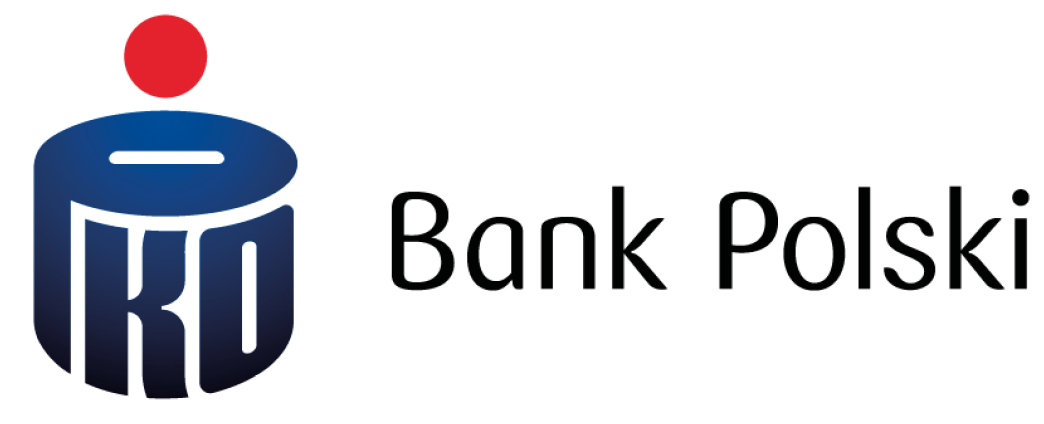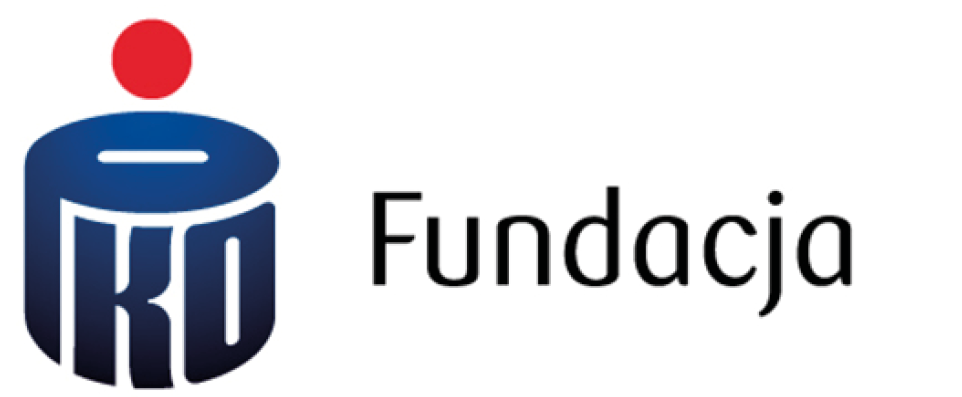Stanisław Lem
European Research Prize
#LemPrize
New call 2025
The Wrocław University of Science and Technology (Wroclaw Tech) has announced a new call for applications – edition 2025. Applications should be submitted by 30 September 2025 to lemprize@pwr.edu.pl.
The application must include:
- a form according to the template provided in the Documents section (the last two pages must be signed by hand and scanned),
- up to 3 publications confirming the discovery or achievement (books, articles, patents etc.),
- 2 or 3 recommendation letters, including max. one by a person affiliated in the same country as the candidate (recommendations should be addressed to the Lem Prize Committee and include the name, title, function, affiliation and signature of the recommending person and date of the recommendation),
- a scientific CV – not required but very helpful.
Who can submit an application? A scientist who:
- is 40 or younger in 2025,
- is affiliated with an academic or research institution in a European Union member state, in an associated country participating in Horizon Europe, or in Switzerland,
- has made in the last 3 full calendar years (from 1 January 2022 until the submission date) a discovery or significant achievement in broadly understood fields of science and engineering.
Detailed regulations for the 2025 edition can be found in the Documents section.
Winners
2025 Edition
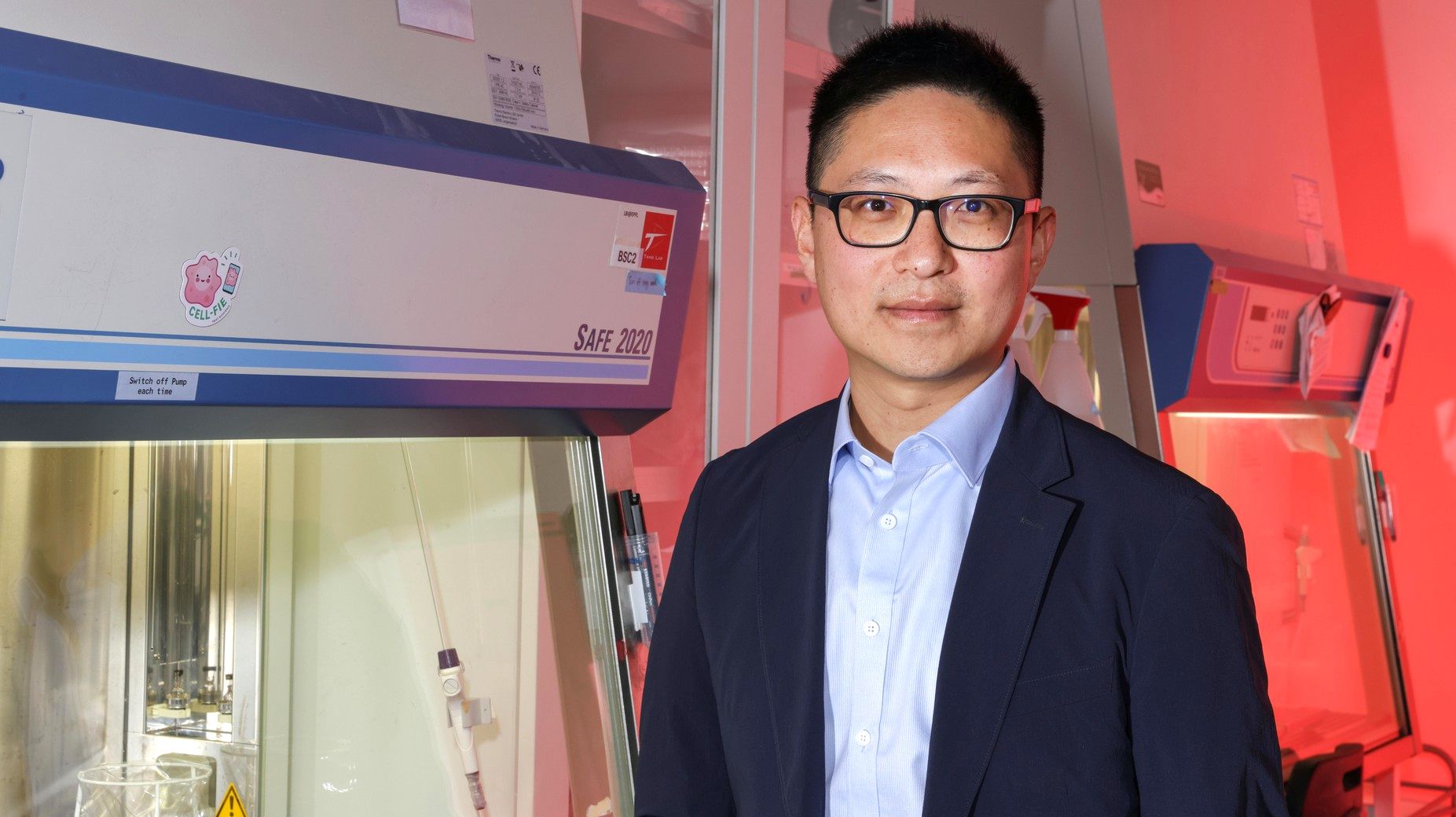
Prof. Li Tang, an immune engineer from École Polytechnique Fédérale de Lausanne (EPFL).
2024 Edition
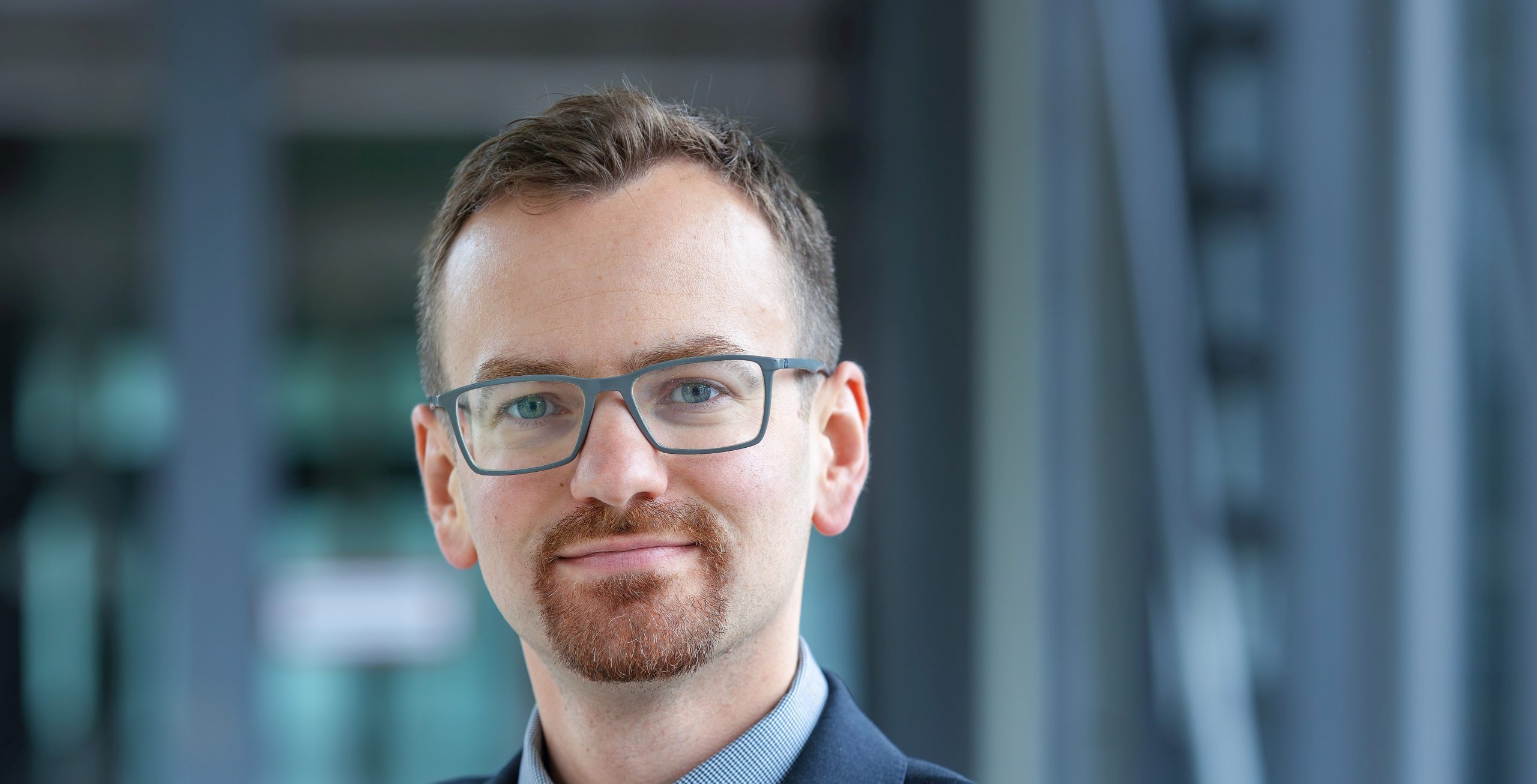
Tobias Dornheim, PhD, theoretical physicist from the Helmholtz-Zentrum Dresden-Rossendorf (HZDR).
2023 Edition
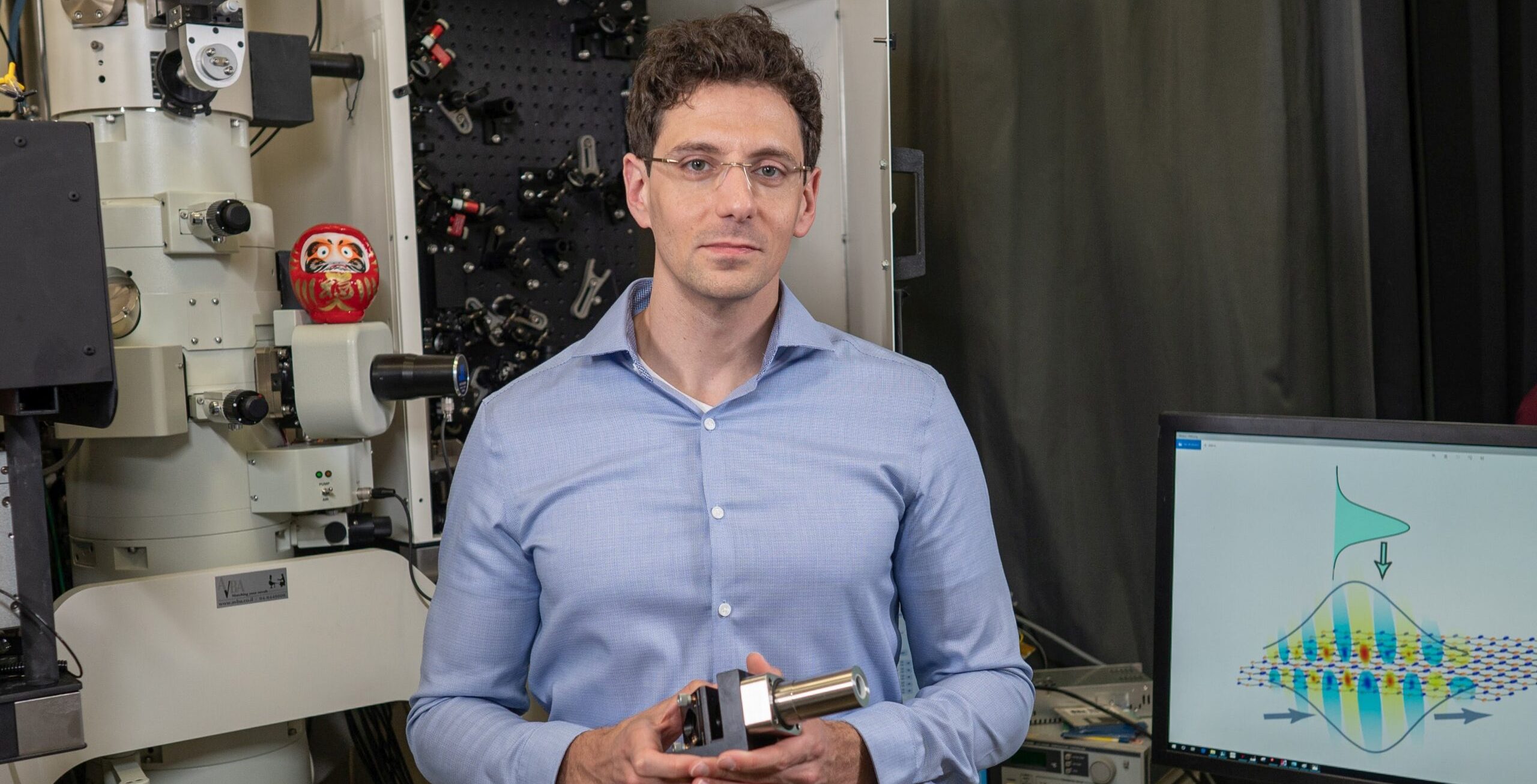
Prof. Ido Kaminer, experimental physicist form Technion Israel Institute of Technology.
2022 Edition
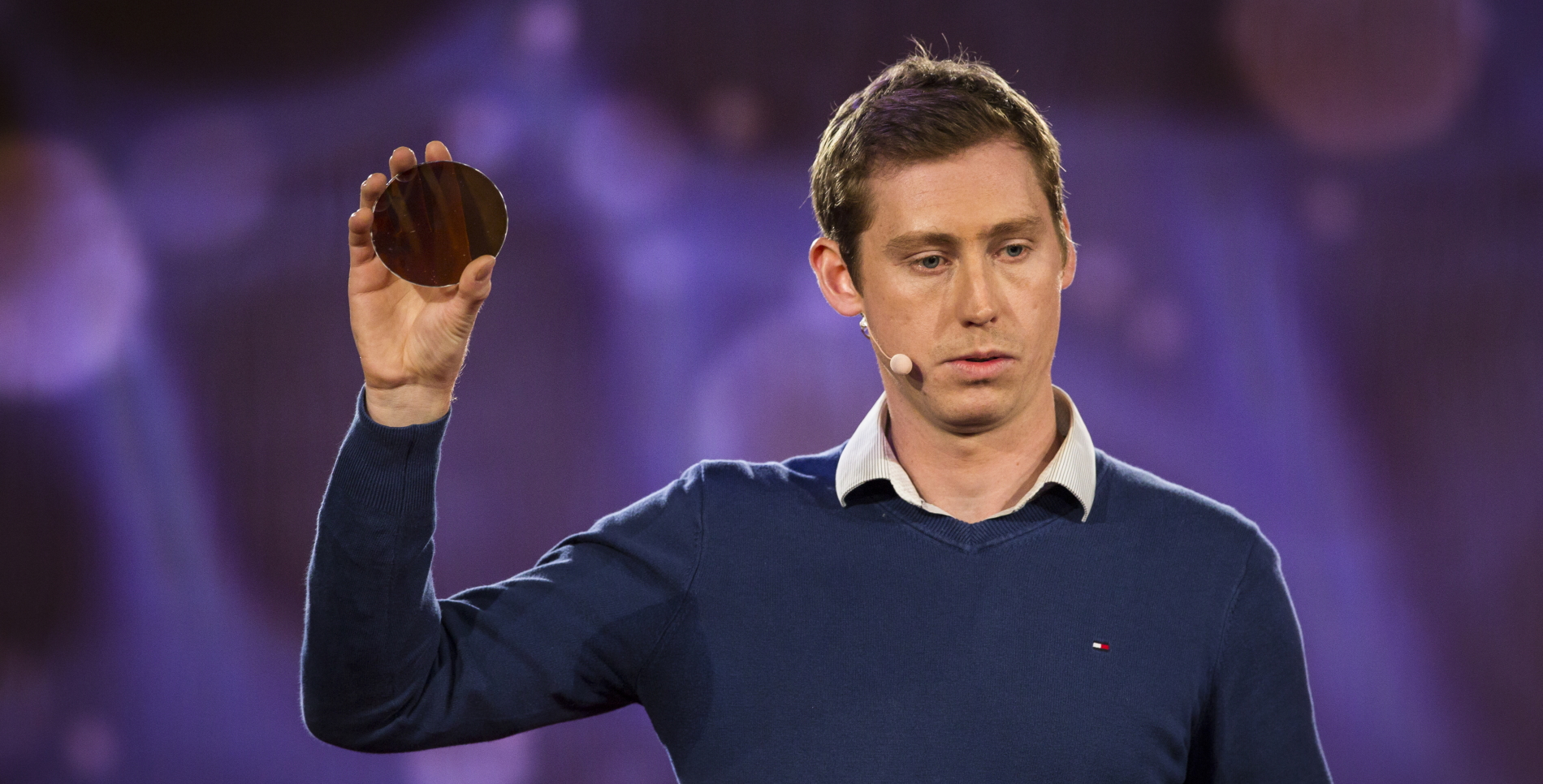
Prof. Samuel Stranks, a specialist in optoelectronics from the University of Cambridge.
2021 Edition
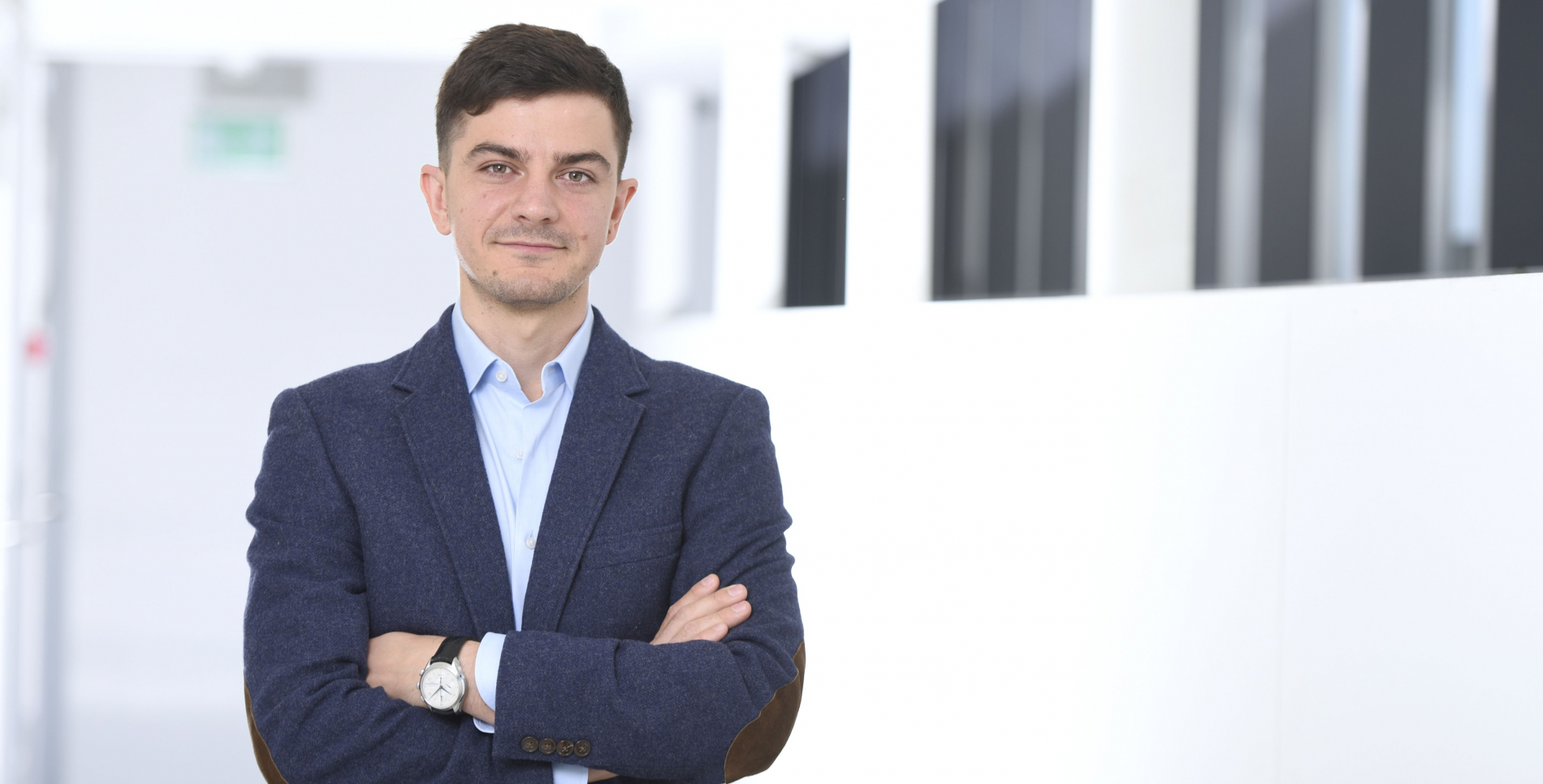
Prof. Randall J. Platt, a researcher working at ETH Zürich and expert in genetic engineering.
Idea
Lem Prize has been established to commemorate the 100th birthday of the great Polish visionary and science fiction novelist, Stanisław Lem, awarded doctorate honoris causa of Wrocław Tech in 1981.
The essential elements of Lem’s literary legacy: people, science, technology, progress, and future – are also the core elements defining the mission and aspirations of Wrocław Tech.
Lem Prize is awarded annually to one young researcher whose creative work in science or engineering has potential for positive impact on the future of civilization increasingly filled with technology.
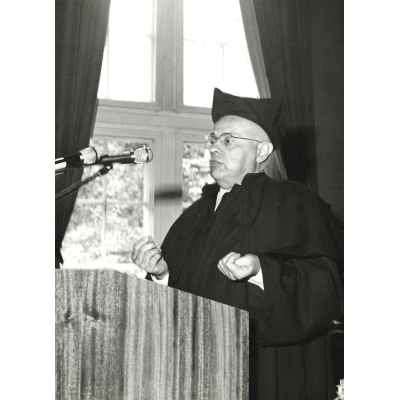
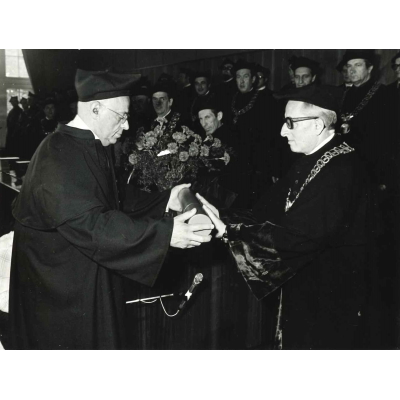
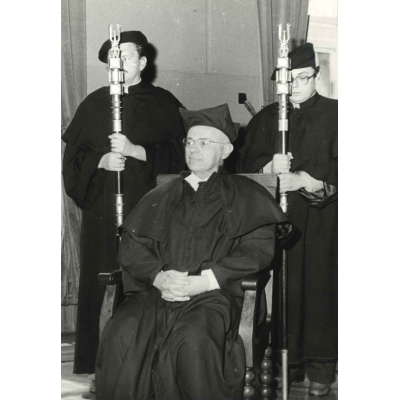
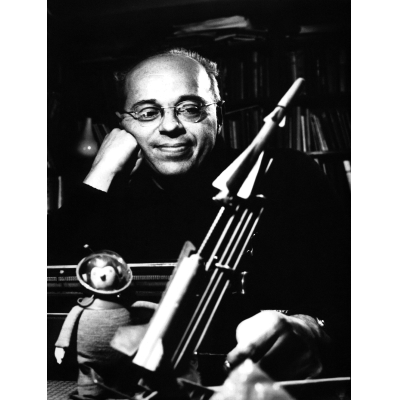
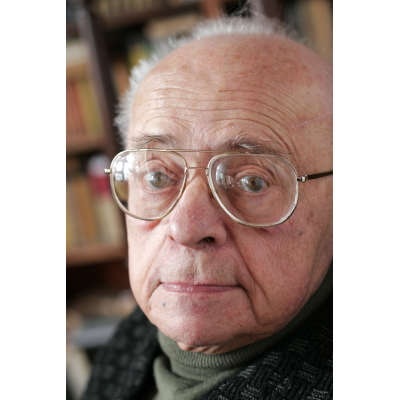
Stanisław Herman Lem
Lem (1921–2006) was a Polish writer of science fiction and essays on, inter alia, philosophy, futurology and literary criticism. Lem’s books have been translated into over 50 languages and have sold over 45 million copies. He is best known worldwide as the author of the novel Solaris (1961).
Lem’s science fiction works explore philosophical threads by speculating about technology, the nature of intelligence, the inability to communicate and understand alien intelligence, despair over human limitations and humanity’s place in the universe.
Candidates
The Lem Prize is addressed to young researchers (people under 40) studying or working in Europe or associated countries - regardless of nationality or origin.
Achievement
The Prize is awarded for a recent discovery or significant achievement in broadly understood fields of science and engineering, with strong elements of technology, interdisciplinarity, creativity and vision.
Selection
The Prize Committee includes distinguished scientists from abroad as well as professores magni and members of Academia Iuvenum of Wrocław Tech.
Procedure
Nominations including the description of the discovery or achievement, relevant publications, and letters of recommendation should be submitted between July 1 and September 30, 2025 at the latest. The winner will be announced to the public on 15 November 2025, during the annual celebrations of Wroclaw Tech anniversary.
Reward
The winner receives a monetary reward equivalent to 100 000 PLN, certificate, and invitation to Wroclaw Tech anniversary festivities on 15 November. They will also be invited to visit Wroclaw Tech in the following year (all expenses covered) to present lecture to the open public, meet with Academia Iuvenum and student organizations at Wroclaw Tech.
International Prize Committee
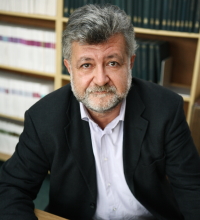 Prof. Maciej Lewenstein conducts research in the field of quantum optics, physics of ultracold gases and quantum computing, which has a great impact in the scientific community. In his research work, he also deals with topics related to statistical physics and neural networks.
Prof. Maciej Lewenstein conducts research in the field of quantum optics, physics of ultracold gases and quantum computing, which has a great impact in the scientific community. In his research work, he also deals with topics related to statistical physics and neural networks.
He lectured, among others at Harvard University, at the Saclay Center for Nuclear Research, as well as at the University of Hannover. He is currently working at the Institute of Photonic Sciences (ICFO) in Barcelona.
Prof. Lewenstein is a member of Academia Europaea and a fellow of the American Physical Society. His scientific publications have been cited over 40 000 times (Hirsch index 100). He has twice won the ERC Advanced Grant and has also been awarded many prestigious awards for scientific activity, including award of the Foundation for Polish Science. He is included in the elite Clarivate list of world’s most Highly Cited Researchers.
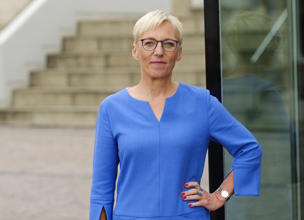
Tanja Brühl is president of Technische Universität Darmstadt, Germany. Before joining TU Darmstadt, Tanja Brühl was professor of political science with a focus on international institutions and peace processes at Goethe University Frankfurt.
Tanja Brühl is active as a science manager: She served as vice president responsible for academic affairs at Goethe University Frankfurt. Since 2019, she is president of the University Network for Innovation, Technology and Engineering (Unite!) – an European University of nine partners from across Europe. Since 2022, Tanja Brühl is president of the Alliance of Leading Technical Universities in Germany (TU9), together with Professor Dr. Angela Ittel, President of TU Braunschweig. Since 2023, Tanja Brühl acts as co-chair of the Advisory Board on the German Federal Government’s Future Research and Innovation Strategy.
 Gérard Albert Mourou is a French scientist and pioneer in the field of electrical engineering and lasers. He was awarded a Nobel Prize in Physics in 2018, along with Donna Strickland, for the invention of chirped pulse amplification, a technique later used to create ultrashort-pulse, very high-intensity (petawatt) laser pulses.
Gérard Albert Mourou is a French scientist and pioneer in the field of electrical engineering and lasers. He was awarded a Nobel Prize in Physics in 2018, along with Donna Strickland, for the invention of chirped pulse amplification, a technique later used to create ultrashort-pulse, very high-intensity (petawatt) laser pulses.
In 1994, Mourou and his team at the University of Michigan discovered that the balance between the self-focusing refraction (see Kerr effect) and self-attenuating diffraction by ionization and rarefaction of a laser beam of terawatt intensities in the atmosphere creates „filaments” which act as waveguides for the beam, thus preventing divergence.
Mourou has been director of the Laboratoire d’optique appliquée at the ENSTA from 2005 to 2009. He is a professor and member of Haut Collège at the École polytechnique and A. D. Moore Distinguished University Professor Emeritus at the University of Michigan where he has taught for over 16 years. He was the founding director of the Center for Ultrafast Optical Science at the University of Michigan in 1990. He had previously led a research group on ultrafast sciences at Laboratoire d’optique appliquée of ENSTA and École polytechnique, after obtaining a PhD degree from Pierre and Marie Curie University in 1973. He then went to the United States and became a professor at the University of Rochester in 1977, where he and his then student Donna Strickland produced their Nobel prize-winning work in the Laboratory for Laser Energetics at the university. The pair co-invented chirped pulse amplification, a „method of generating high-intensity, ultra-short optical pulses”. Strickland’s doctoral thesis was on „development of an ultra-bright laser and an application to multi-photon ionization”.
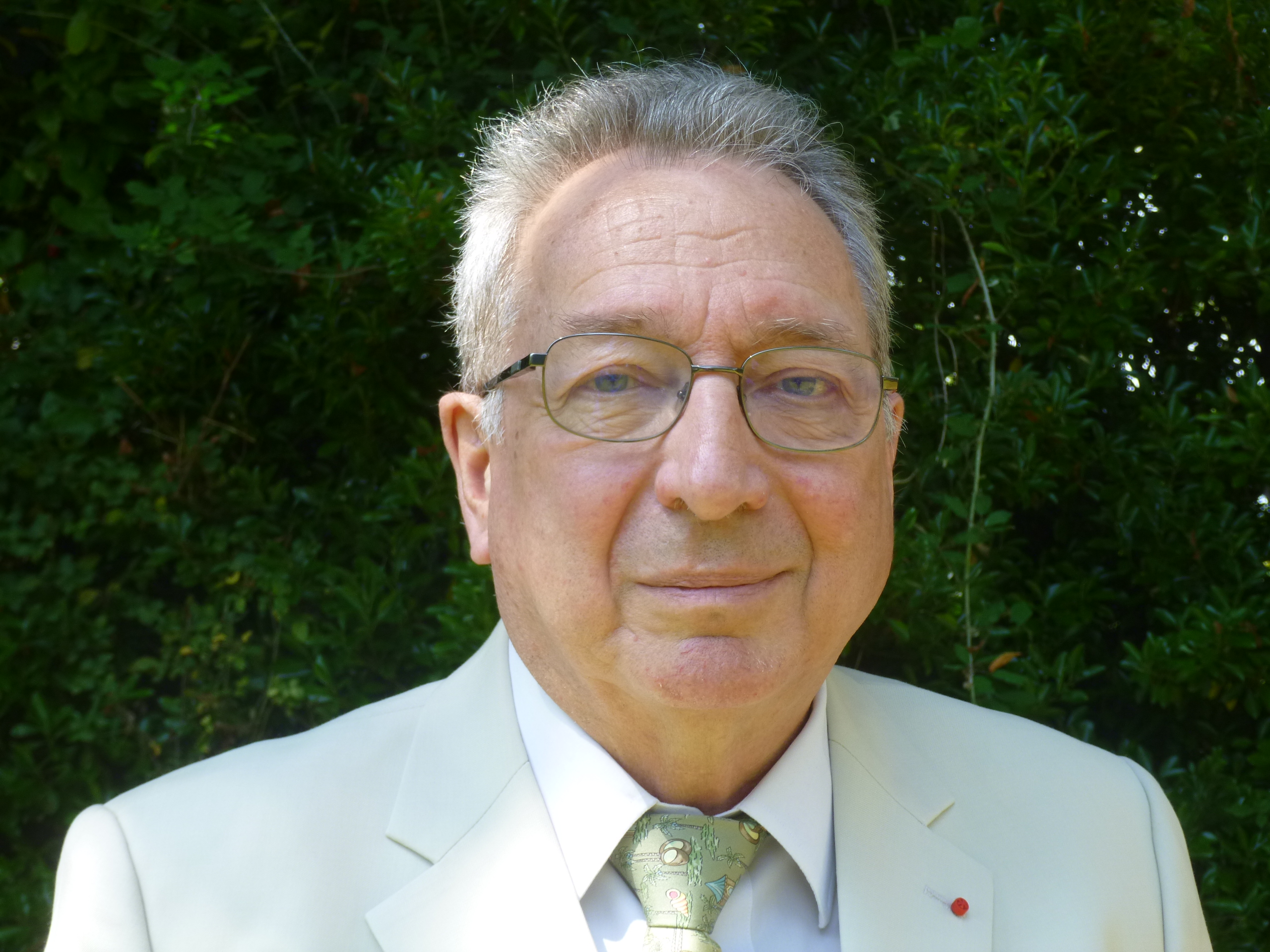 Michel Virlogeux is born on July 7,1946 at Vichy, France. He has been educated at the Prytanée National Militaire at La Flèche. He was graduated in1967 at the Ecole Polytechnique, in 1970 at the Ecole Nationale des Ponts et Chaussées ; in 1973 he became Docteur-Ingénieur of the Paris University. Civil servant in the French Administration, he started his professional career during three years in Tunisia. When back to France he worked more than 20 years at the Setra, the technical service of the Ministry of Transport, where he designed many bridges, including the Normandie Bridge. In 1995 he settled as independent consultant, working as expert and designer. Among many other bridges, he designed the Millau Viaduct, and the Third Bosphorus Bridge with Jean François Klein. He received many awards, and in 2021 he became Doctor Honoris Causa of the Wroclaw University of Sciences and Technology.
Michel Virlogeux is born on July 7,1946 at Vichy, France. He has been educated at the Prytanée National Militaire at La Flèche. He was graduated in1967 at the Ecole Polytechnique, in 1970 at the Ecole Nationale des Ponts et Chaussées ; in 1973 he became Docteur-Ingénieur of the Paris University. Civil servant in the French Administration, he started his professional career during three years in Tunisia. When back to France he worked more than 20 years at the Setra, the technical service of the Ministry of Transport, where he designed many bridges, including the Normandie Bridge. In 1995 he settled as independent consultant, working as expert and designer. Among many other bridges, he designed the Millau Viaduct, and the Third Bosphorus Bridge with Jean François Klein. He received many awards, and in 2021 he became Doctor Honoris Causa of the Wroclaw University of Sciences and Technology.
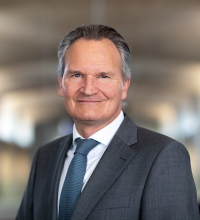 Robert-Jan Smits is the President of the Eindhoven University of Technology. Prior to this, he worked at the European Commission in the positions of Open Access Envoy (2018-2019) and Director-General of DG Research and Innovation (RTD) (2010-2018) where he was responsible for defining and implementing the EU policy and programmes in the field of research and innovation: Horizon 2020 (annual budget: 8 billion euro). Drs. Smits is also one of the architects of the successor programme Horizon Europe (annual budget: 10 billion euro).
Robert-Jan Smits is the President of the Eindhoven University of Technology. Prior to this, he worked at the European Commission in the positions of Open Access Envoy (2018-2019) and Director-General of DG Research and Innovation (RTD) (2010-2018) where he was responsible for defining and implementing the EU policy and programmes in the field of research and innovation: Horizon 2020 (annual budget: 8 billion euro). Drs. Smits is also one of the architects of the successor programme Horizon Europe (annual budget: 10 billion euro).
Drs. Smits has received several recognitions and awards for his contribution to European science and innovation. He is an honorary member of Academia Europaea and of the Koninklijke Hollandsche Maatschappij der Wetenschappen. He has degrees from Utrecht University in The Netherlands, Institut Universitaire d’Hautes Etudes Internationales in Switzerland and Fletcher School of Law & Diplomacy in the United States of America.
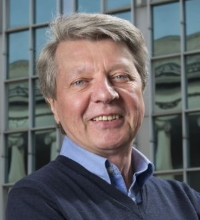 Krzysztof Matyjaszewski is a Polish-American chemist. He is the J. C. Warner Professor of the Natural Sciences at the Carnegie Mellon University. Prof. Matyjaszewski is best known for the discovery of atom transfer radical polymerization (ATRP), a novel method of polymer synthesis that has revolutionized the way macromolecules are made.
Krzysztof Matyjaszewski is a Polish-American chemist. He is the J. C. Warner Professor of the Natural Sciences at the Carnegie Mellon University. Prof. Matyjaszewski is best known for the discovery of atom transfer radical polymerization (ATRP), a novel method of polymer synthesis that has revolutionized the way macromolecules are made.
Prof. Matyjaszewski was elected a member of the National Academy of Engineering in 2006 for expanding the capabilities of controlled/living polymerizations and developing ATRP, a robust catalytic process for the radical polymerization of monomers. He is also a member of the European Academy of Sciences. His scientific publications have been cited over 100 000 times (Hirsch index 162). He is included in the elite Clarivate list of world’s most Highly Cited Researchers.
In 2011 he was a co-winner of the prestigious Wolf Prize in Chemistry.
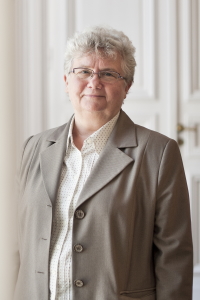 Physicist and professor at the University of Warsaw. Her research interests include information optics, holography, optical and hybrid information processing.
Physicist and professor at the University of Warsaw. Her research interests include information optics, holography, optical and hybrid information processing.
Prof. Katarzyna Chałasińska-Macukow was rector for two terms (from 2005 to 2012) and the first woman to hold this position in the history of the UW. In 2008-2012 she also headed the Conference of Rectors of Academic Schools in Poland.
In 1970, she began working at the Institute of Physics of the Warsaw University of Technology, and from 1974 at the Institute of Experimental Physics. She received her PhD in 1979 and her postdoctoral degree in physics in 1988. She became an associate professor in 1992 and a full professor in 1997.
In 2009, she received an honorary doctorate from the Autonomous University of Barcelona (UAB), with which she has collaborated for twenty years. In 2013, she was also honoured with this title by the University of Transcarpathia in Ivano-Frankivsk. Madam Professor is a member of numerous scientific societies, including the Warsaw Scientific Society and the International Society for Optical Engineering (SPIE, USA). During the 2014-2017 term, she was president of the Polish Physical Society.
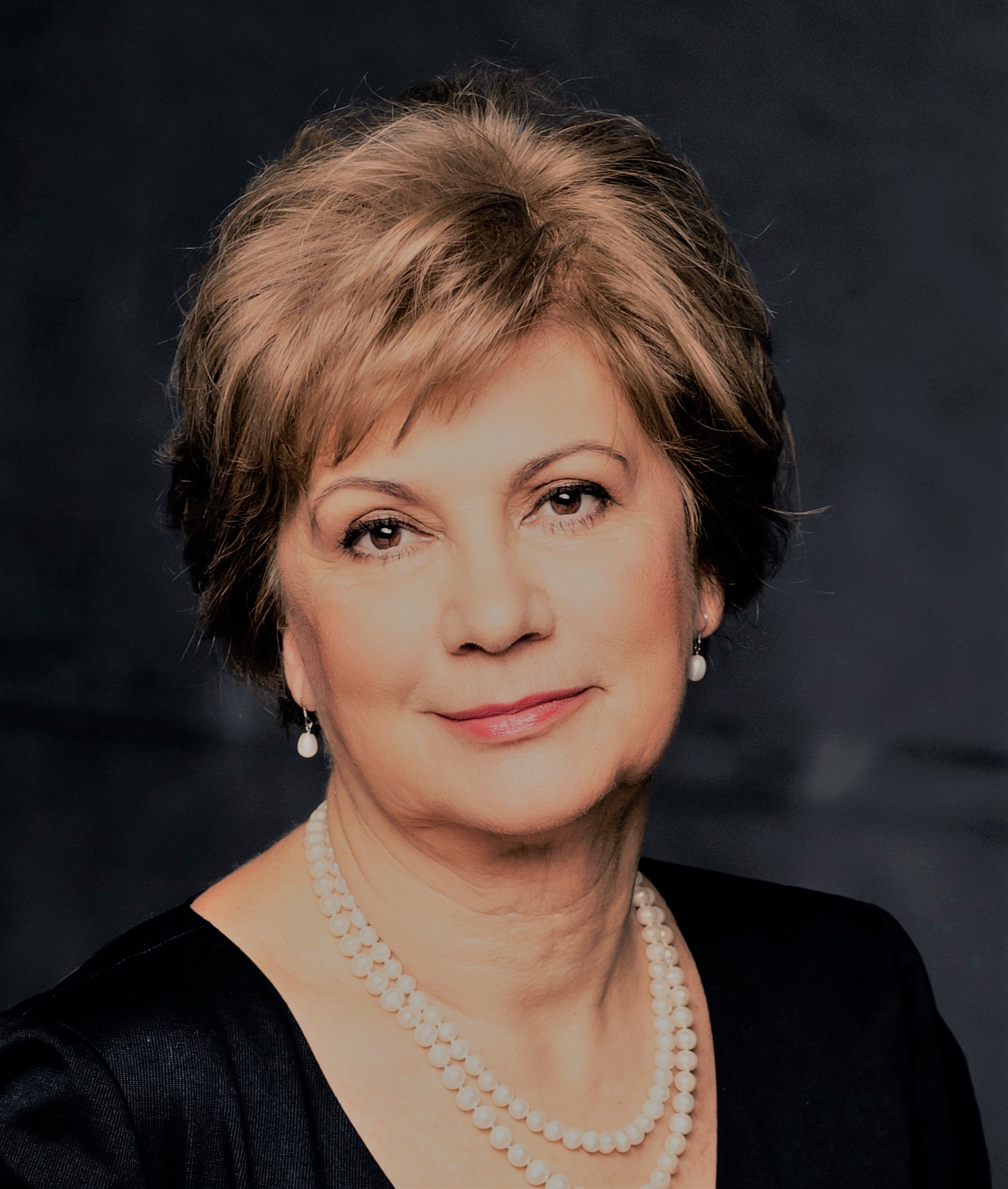 Prof. Éva Kondorosi is a Hungarian French molecular biologist. Her primary research field is Rhizobium-legume symbiosis and biological nitrogen fixation with a recent focus on plant-controlled differentiation of bacteria. Her work includes chemical ecology (molecular communication between the plants and bacteria), plant organ development, cell differentiation and fighting antimicrobial resistance.
Prof. Éva Kondorosi is a Hungarian French molecular biologist. Her primary research field is Rhizobium-legume symbiosis and biological nitrogen fixation with a recent focus on plant-controlled differentiation of bacteria. Her work includes chemical ecology (molecular communication between the plants and bacteria), plant organ development, cell differentiation and fighting antimicrobial resistance.
She has received several prestigious scientific awards including the Balzan Prize and she is a member of the Hungarian Academy of Sciences, the National Academy of Sciences (USA), the Academia Europaea, the German National Academy of Sciences Leopoldina, the French Academy of Agriculture, the European Academy of Microbiology and the European Molecular Biology Organization. Eva Kondorosi is the current chair of Class C (Life Sciences) and Vice President of the Academia Europaea. She was also one of the seven members of the Group of Chief Scientific Advisors of the European Commission.
Presently, she works at the HUN-REN Biology Research Center in Szeged.
Website: kondorosi-symbiosis.eu
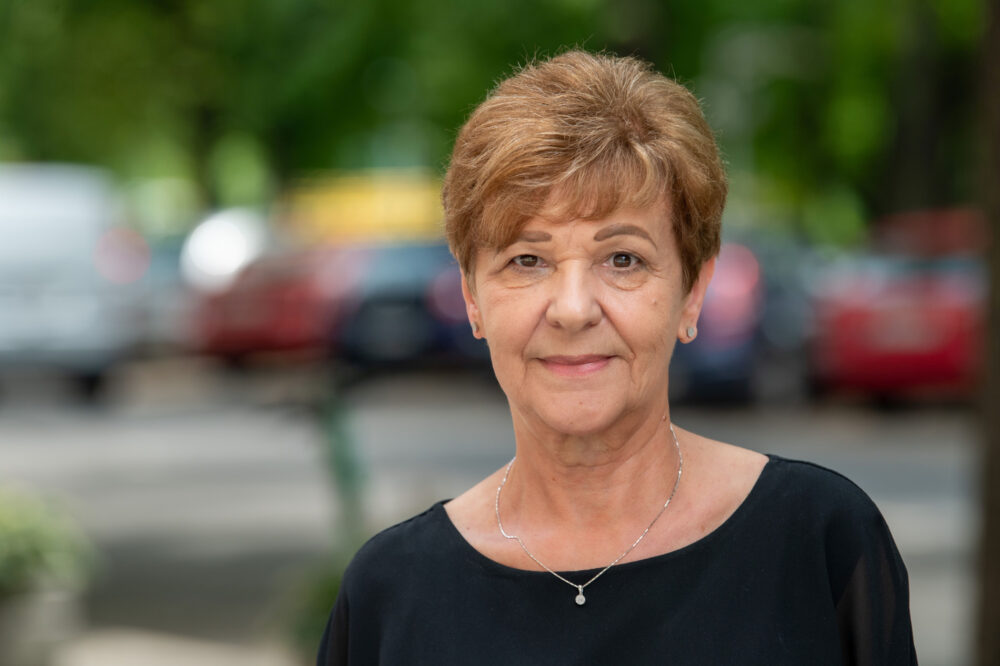 Professor Halina Kwaśnicka is a computer scientist specializing in artificial intelligence at the Department of Artificial Intelligence of the Wroclaw University of Science and Technology. She led research projects on applying artificial intelligence methods in medicine, image analysis and natural language processing. She participated in EU projects and managed a Polish-Singapore research project. She is a member of the Program Council of the AI Tech project (invited by the Minister of Digital Affairs) which aims to conduct high-level graduate studies on Artificial Intelligence. She is also a member of the Steering Committee of the National Center for Research and Development – INFOSTRATEG Strategic Program.
Professor Halina Kwaśnicka is a computer scientist specializing in artificial intelligence at the Department of Artificial Intelligence of the Wroclaw University of Science and Technology. She led research projects on applying artificial intelligence methods in medicine, image analysis and natural language processing. She participated in EU projects and managed a Polish-Singapore research project. She is a member of the Program Council of the AI Tech project (invited by the Minister of Digital Affairs) which aims to conduct high-level graduate studies on Artificial Intelligence. She is also a member of the Steering Committee of the National Center for Research and Development – INFOSTRATEG Strategic Program.
Professor Kwaśnicka was invited by the Editorial Board of the London Journal of Research in Science: Natural and Formal (LJRS) as an honorary Rosalind Member of London Journals Press. She also worked as an expert of the European Commission on the review of the project „TRUST-AI,” a Transparent, Reliable and Unbiased Smart Tool for AI.
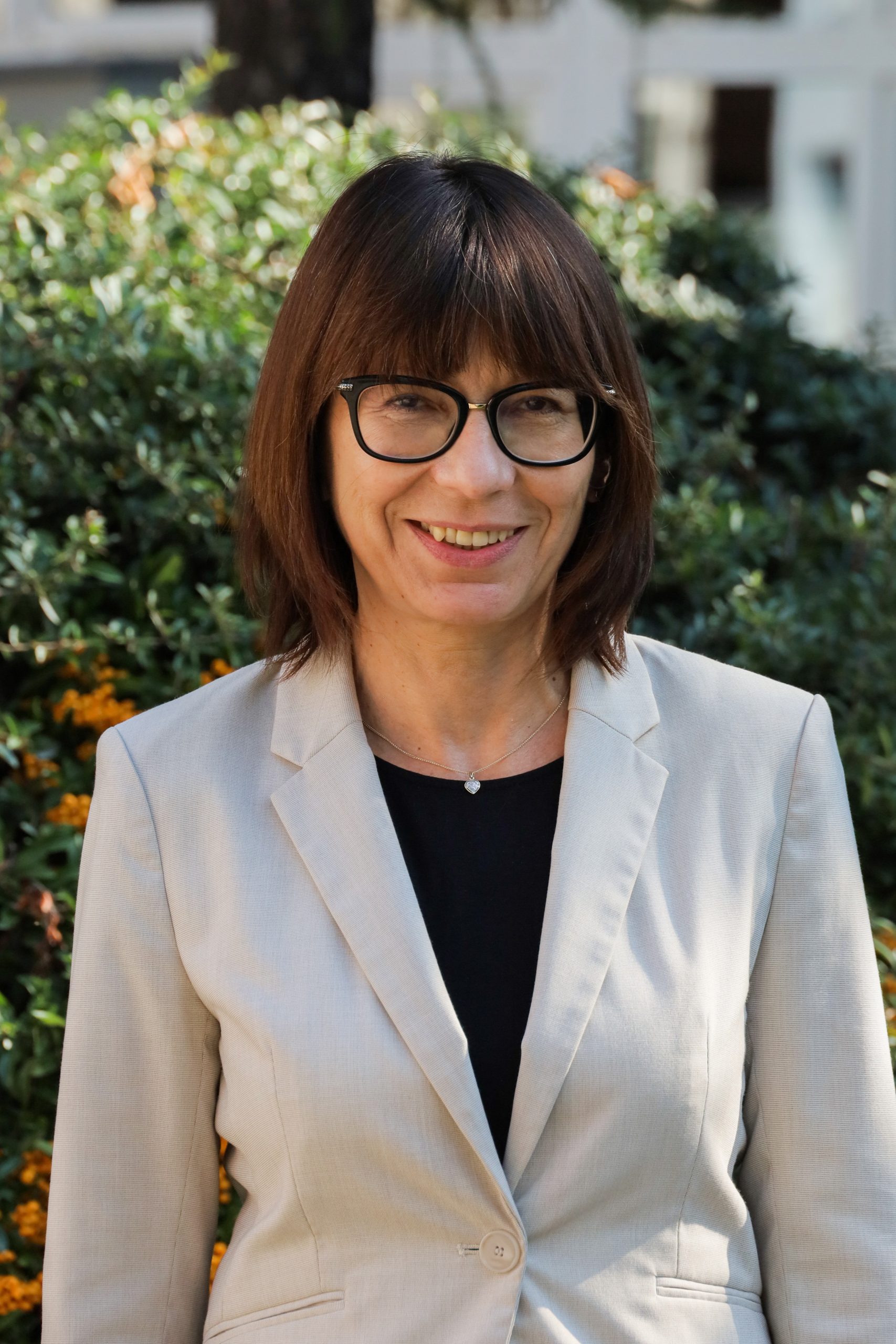 Professor Grażyna Gryglewicz is a head of the Department of Process Engineering and Technology of Polymer and Carbon Materials in the Faculty of Chemistry at the Wroclaw University of Science and Technology. She obtained a PhD in chemical technology in 1983 and her postdoctoral degree in 1998. She was promoted to a full professor in 2008. Her research interests are related to the synthesis of carbon/graphene materials and their application in water treatment, energy storage and environmental monitoring. She was in charge of numerous research projects, including three EU projects as a Polish leader. In 2021-2024 she was a chairman of the discipline of chemical engineering in the Faculty of Chemistry. The discipline was awarded the highest category of A+ in recent national evaluation. Since 2013 she has been a member of the Polish Carbon Society Board. She is included in the Ranking World’s TOP 2% Scientists.
Professor Grażyna Gryglewicz is a head of the Department of Process Engineering and Technology of Polymer and Carbon Materials in the Faculty of Chemistry at the Wroclaw University of Science and Technology. She obtained a PhD in chemical technology in 1983 and her postdoctoral degree in 1998. She was promoted to a full professor in 2008. Her research interests are related to the synthesis of carbon/graphene materials and their application in water treatment, energy storage and environmental monitoring. She was in charge of numerous research projects, including three EU projects as a Polish leader. In 2021-2024 she was a chairman of the discipline of chemical engineering in the Faculty of Chemistry. The discipline was awarded the highest category of A+ in recent national evaluation. Since 2013 she has been a member of the Polish Carbon Society Board. She is included in the Ranking World’s TOP 2% Scientists.
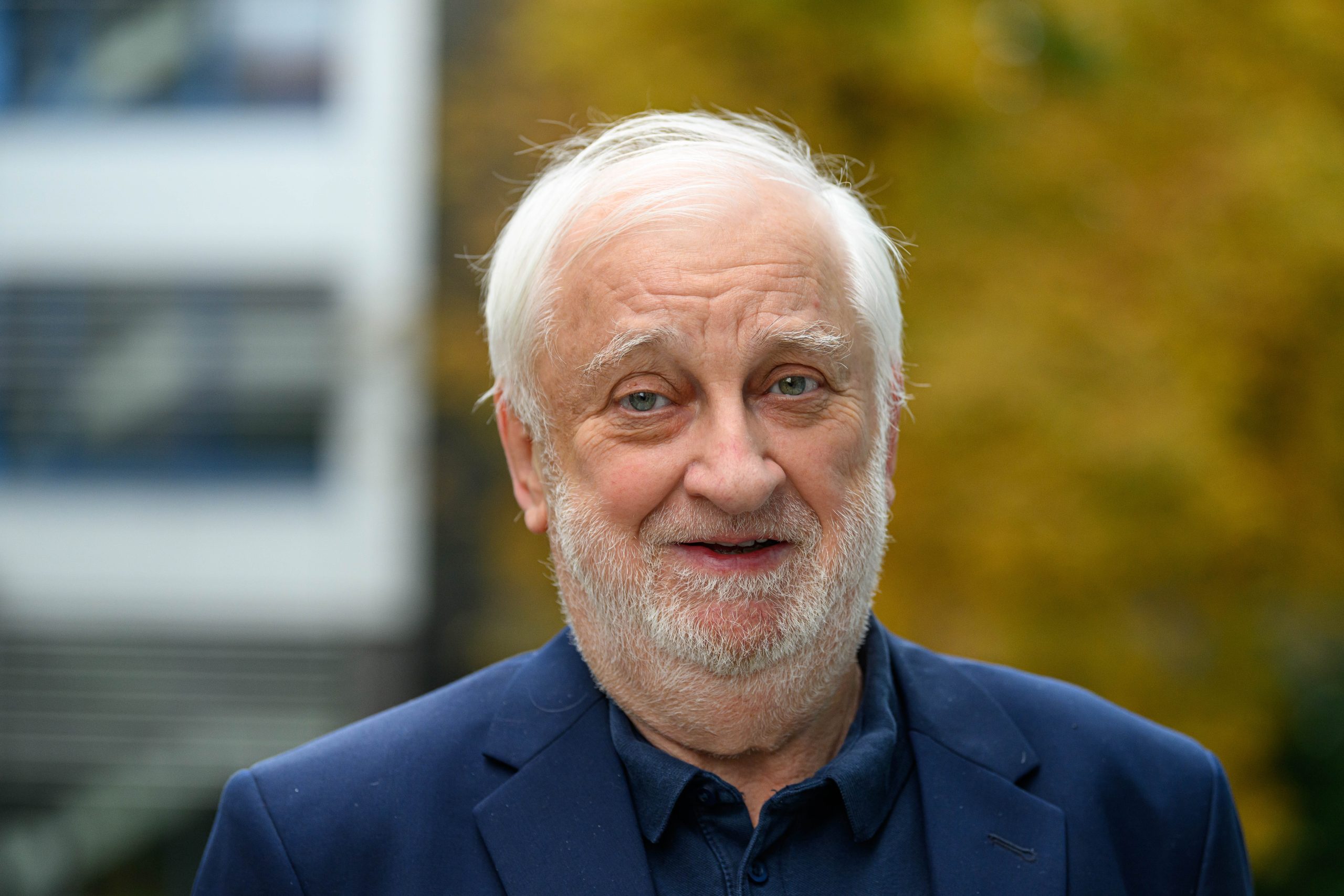 Krzysztof M. Abramski (Electronics, Photonics and Microsystems Faculty) received PhD (1978) in electronics from Wrocław University of Science and Technology. At that time he worked at frequency stabilization of gas lasers and many aspects of spectral properties of laser radiation. In 1983-84 he worked (Research Fellow) at Twente University of Technology, the Netherlands (CO2, CO lasers, excimer lasers). In 1987 he worked half a year in Faculty of Applied Physics, Hull University, England. After that he worked as a visiting scientist for five years, till 1992 in Optoelectrionics and Lasers Engineering Group, Heriott-Watt University, Edinburgh, on different aspects of radio frequency excited CO2 lasers (wavegudes, slab-waveguides, waveguide arrays, phase locking structures). He returned to Wrocław (1993), where he started creating the Laser and Fiber Electronics Research Group. His scientific interests: optical fiber lasers (cw tunable, pulsed femtosecond, optical combs), microchip solid state diode pumped lasers, optical fiber sensors, free-space and optical fiber communications, laser spectroscopy. His motto is “teaching by research”, he has promoted 21 PhDs”. From 2007 he is the honorary professor of Heriot-Watt University. He initiated the popular English teaching programs “Electronic and Computer Engineering” and “Advanced Applied Electronics” (MSc). He is on the list of Ranking World’s TOP 2% Scientists.
Krzysztof M. Abramski (Electronics, Photonics and Microsystems Faculty) received PhD (1978) in electronics from Wrocław University of Science and Technology. At that time he worked at frequency stabilization of gas lasers and many aspects of spectral properties of laser radiation. In 1983-84 he worked (Research Fellow) at Twente University of Technology, the Netherlands (CO2, CO lasers, excimer lasers). In 1987 he worked half a year in Faculty of Applied Physics, Hull University, England. After that he worked as a visiting scientist for five years, till 1992 in Optoelectrionics and Lasers Engineering Group, Heriott-Watt University, Edinburgh, on different aspects of radio frequency excited CO2 lasers (wavegudes, slab-waveguides, waveguide arrays, phase locking structures). He returned to Wrocław (1993), where he started creating the Laser and Fiber Electronics Research Group. His scientific interests: optical fiber lasers (cw tunable, pulsed femtosecond, optical combs), microchip solid state diode pumped lasers, optical fiber sensors, free-space and optical fiber communications, laser spectroscopy. His motto is “teaching by research”, he has promoted 21 PhDs”. From 2007 he is the honorary professor of Heriot-Watt University. He initiated the popular English teaching programs “Electronic and Computer Engineering” and “Advanced Applied Electronics” (MSc). He is on the list of Ranking World’s TOP 2% Scientists.
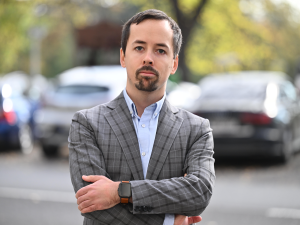 Dr Karol Postawa works at the frontier of chemical engineering and advanced computer techniques including Artificial Neural Networks and other forms of machine learning. He is a member of the Academia Iuvenum and the Wroclaw Scientific Society. Dr Postawa holds a PhD in chemical engineering, and his formal training includes also biotechnology.
Dr Karol Postawa works at the frontier of chemical engineering and advanced computer techniques including Artificial Neural Networks and other forms of machine learning. He is a member of the Academia Iuvenum and the Wroclaw Scientific Society. Dr Postawa holds a PhD in chemical engineering, and his formal training includes also biotechnology.
His research interests center on renewable energy sources, particularly liquid and gaseous fuels—especially biogas. He is the author of numerous publications featured in leading scientific journals, collectively cited nearly 500 times. Co-operating with top research centers across the country and with partners in the Czech Republic and Ukraine, he actively engages in both national and international scientific efforts. His involvement spans a range of high-impact initiatives and implementation projects of significant economic value, including those in the BIOSTRATEG and POIR programs. Driven by the principles of sustainable development, his work also promotes the integration of innovative computational methods into modern science.
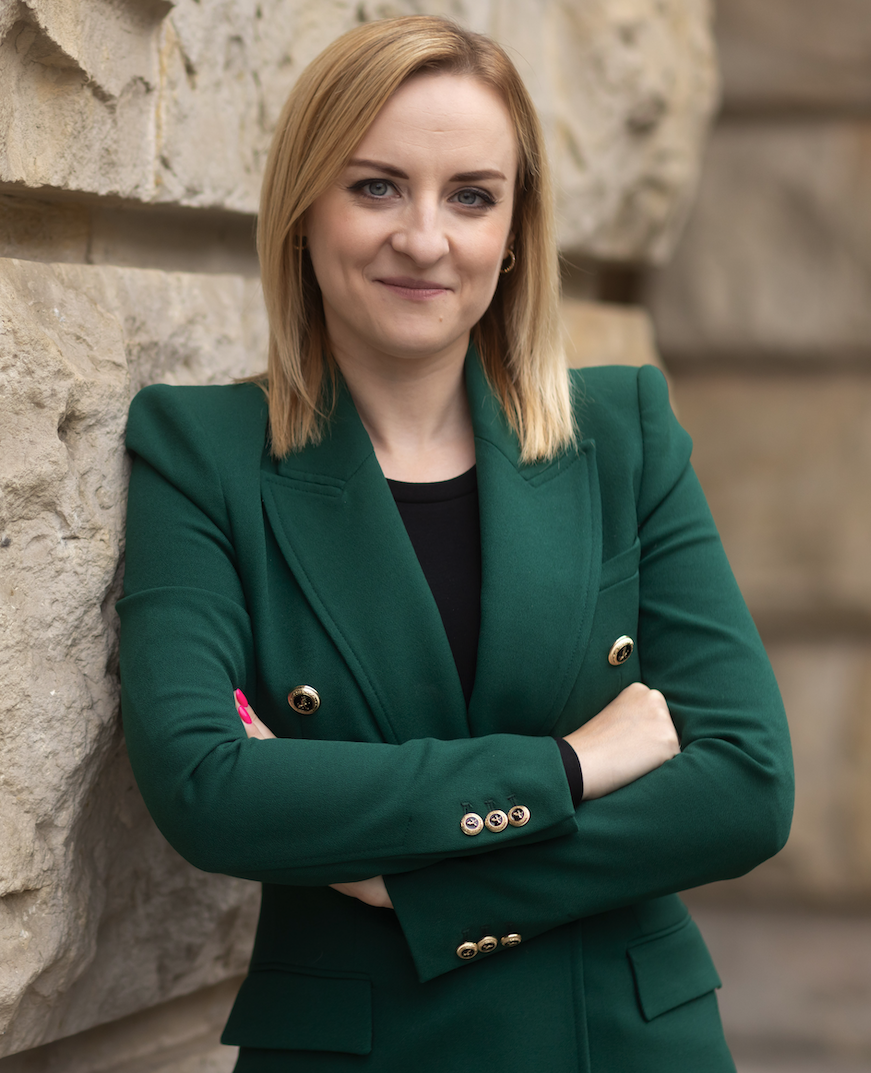 Dr Weronika Urbańska holds a PhD in environmental engineering, mining, and energy, specializing in waste technology. She is an Assistant Professor at the Faculty of Environmental Engineering, Wrocław University of Science and Technology.
Dr Weronika Urbańska holds a PhD in environmental engineering, mining, and energy, specializing in waste technology. She is an Assistant Professor at the Faculty of Environmental Engineering, Wrocław University of Science and Technology.
Her research focuses on recovering critical metals from spent lithium batteries, sustainable raw materials management, and their extraction from extraterrestrial sources. She is currently involved in the preparation and implementation of the Space Volcanic Algae experiment by Extremo Technologies, conducted as part of the first Polish technological and scientific mission to the International Space Station, IGNIS, featuring a Polish astronaut.
Dr Urbańska is also an active science communicator. She is a member of Academia Iuvenum at WUST and of the Wrocław Academy of Young Scholars and Artists, where she also served as Chair (2023–2024). She has received numerous awards, including the Wrocław Woman of the Year 2024 in the category of scientific and research activity. Additionally, she is as an academic tutor and accessibility leader at WUST.
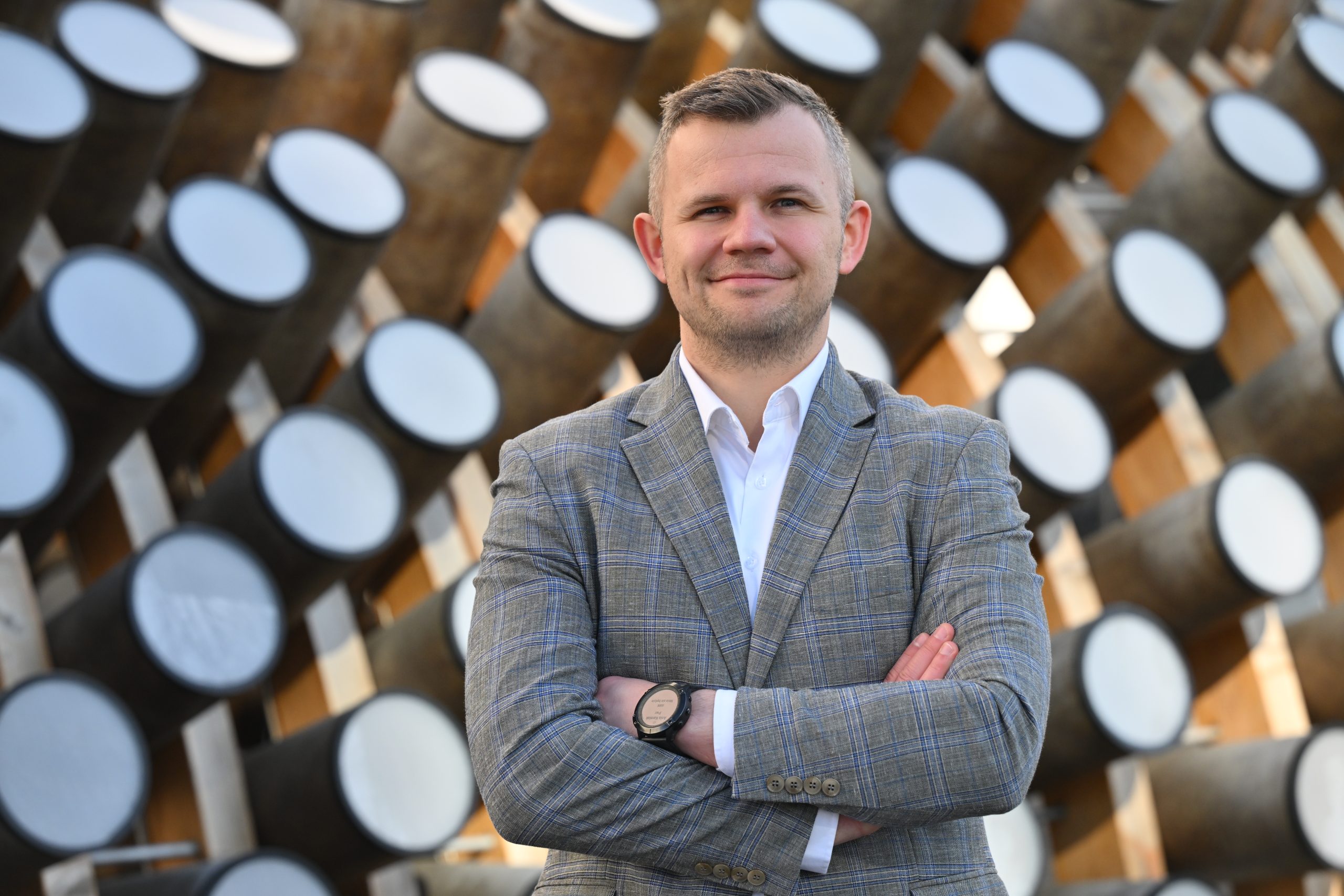 Adrian Chajec PhD is an Assistant Professor at Wrocław University of Science and Technology in the Department of Civil Engineering. He represents the Academia Iuvenum, a body bringing together the best young scientists in all disciplines at WUST. He is an expert in research at the intersection of materials engineering and construction, developing modern methods for reducing the environmental footprint of cementitious composites. He has received numerous awards for his scientific work (including from the Mayor of Wrocław, the Foundation for Polish Science and the Minister of Science and Higher Education). He has participated in many scientific and application projects and is the project manager of Preludium 22 and Opus 28, funded by the Polish National Science Centre. The scientist’s current research topic is the development of a new generation of electrically conductive concrete based on mineral waste, on the surface of which carbon nanostructures have been created. He is the author of over 50 scientific publications and 5 expert publications commissioned by industry.
Adrian Chajec PhD is an Assistant Professor at Wrocław University of Science and Technology in the Department of Civil Engineering. He represents the Academia Iuvenum, a body bringing together the best young scientists in all disciplines at WUST. He is an expert in research at the intersection of materials engineering and construction, developing modern methods for reducing the environmental footprint of cementitious composites. He has received numerous awards for his scientific work (including from the Mayor of Wrocław, the Foundation for Polish Science and the Minister of Science and Higher Education). He has participated in many scientific and application projects and is the project manager of Preludium 22 and Opus 28, funded by the Polish National Science Centre. The scientist’s current research topic is the development of a new generation of electrically conductive concrete based on mineral waste, on the surface of which carbon nanostructures have been created. He is the author of over 50 scientific publications and 5 expert publications commissioned by industry.
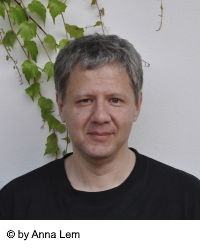
Tomasz Lem, the son of Stanisław Lem, is a Polish translator of English-language literature. He graduated from the American International School in Vienna, then studied physics and mathematics at the University of Vienna, and graduated from Princeton University.
Ms. Katarzyna Kozłowska completed her master and doctoral degree in automation, electronics and electrical engineering at the Wrocław University of Science and Technology.
Since 2020, Dr Katarzyna Kozłowska has been the head of the Department of Science and Research, which is responsible for ensuring the proper course of scientific promotion procedures at the university and also supports academics in competitions for scientific awards and scholarships. Before, she was the head of the Center for Science and Economy Cooperation.
pwr.edu.pl/en
#wroclawtech
Contact us
Katarzyna Kozłowska, PhD, Dsc, Eng
+48 71 320 20 47
Barbara Krupińska, Msc, Eng
+48 71 320 22 68,
mob. +48 661 531 020
e-mail: lemprize@pwr.edu.pl




